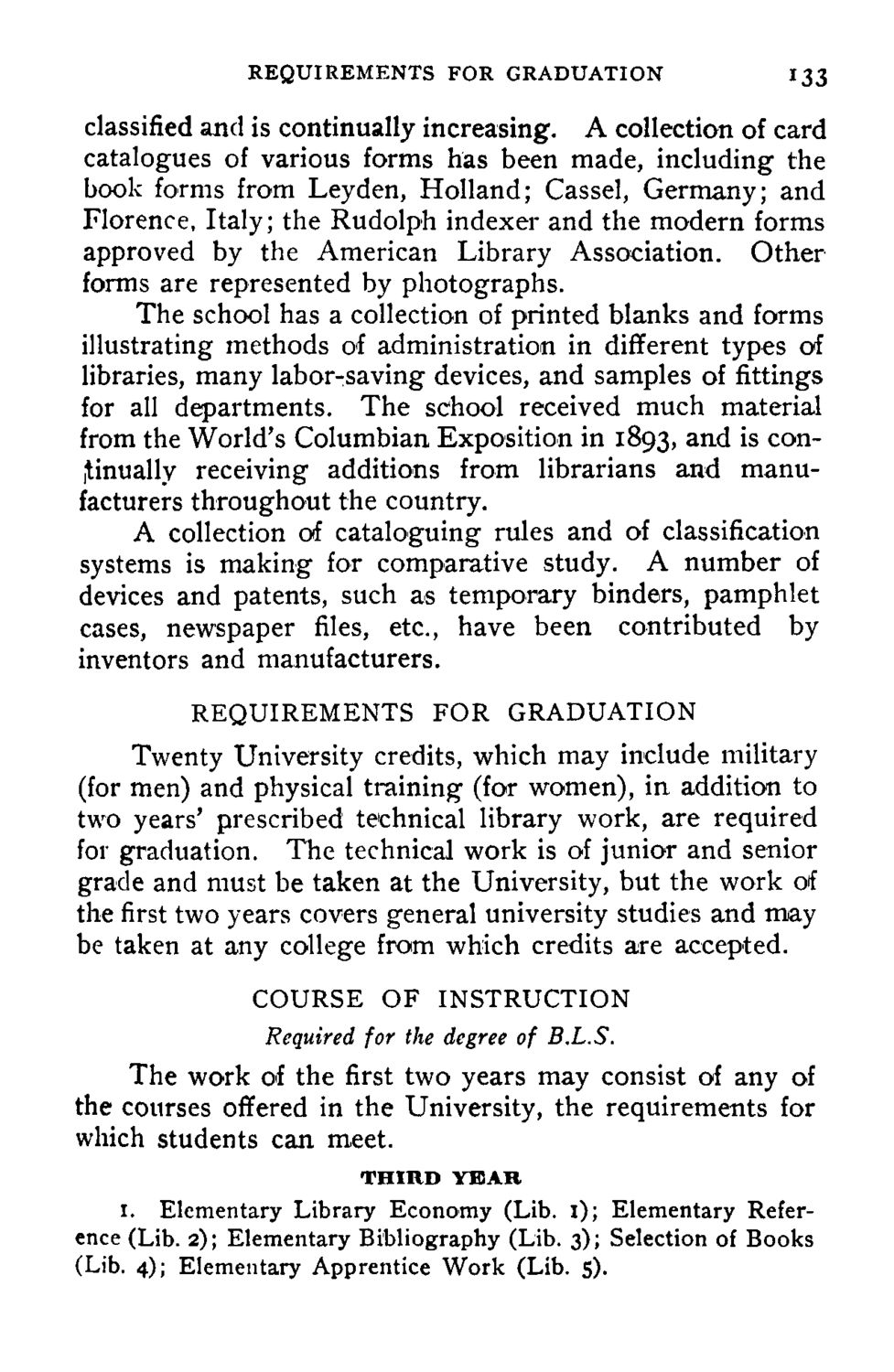| |
| |
Caption: Course Catalog - 1897-1898
This is a reduced-resolution page image for fast online browsing.

EXTRACTED TEXT FROM PAGE:
REQUIREMENTS FOR GRADUATION 133 classified and is continually increasing. A collection of card catalogues of various forms has been made, including the book forms from Leyden, Holland; Cassel, Germany; and Florence, Italy; the Rudolph indexer and the modern forms approved by the American Library Association. Other forms are represented by photographs. The school has a collection of printed blanks and forms illustrating methods of administration in different types of libraries, many labor-saving devices, and samples of fittings for all departments. The school received much material from the World's Columbian Exposition in 1893, and is continually receiving additions from librarians and manufacturers throughout the country. A collection of cataloguing rules and of classification systems is making for comparative study. A number of devices and patents, such as temporary binders, pamphlet cases, newspaper files, etc., have been contributed by inventors and manufacturers. REQUIREMENTS FOR GRADUATION Twenty University credits, which may include military (for men) and physical training (for women), in addition to two years' prescribed technical library work, are required for graduation. The technical work is of junior and senior grade and must be taken at the University, but the work of the first two years covers general university studies and may be taken at any college from which credits are accepted. COURSE OF INSTRUCTION Required for the degree of B.L.S. The work of the first two years may consist of any of the courses offered in the University, the requirements for which students can meet. THIRD YEAR 1. Elementary Library Economy (Lib. 1); Elementary Reference (Lib. 2); Elementary Bibliography (Lib. 3); Selection of Books (Lib. 4); Elementary Apprentice Work (Lib. s)-
| |